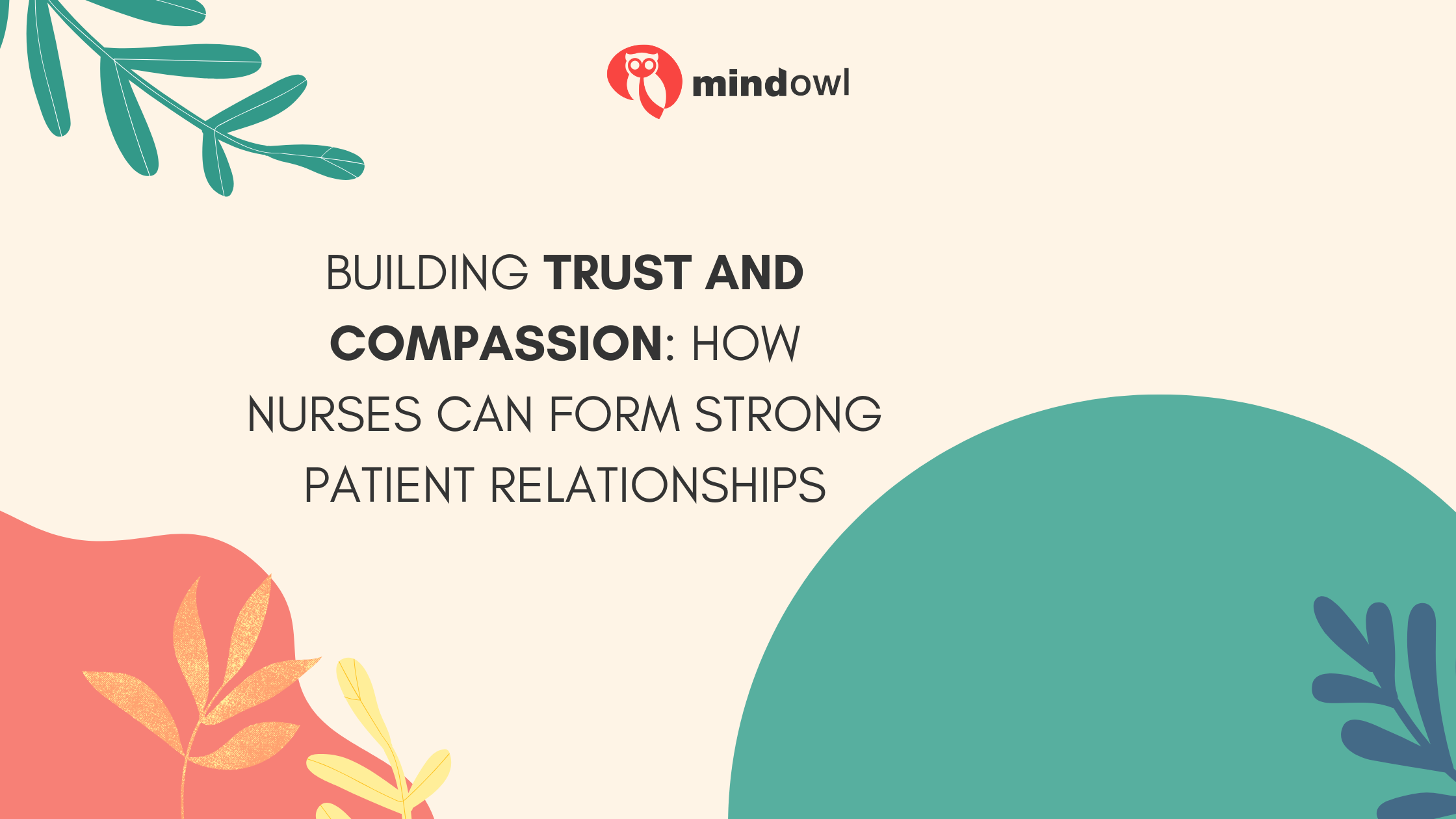
Working as a nurse not only requires skills gained through formal qualifications but also soft skills to build strong relationships with patients. The importance of these skills can’t be understated; they directly contribute to the standard of care nurses provide and patients receive. Without capable nurses who can perform these skills in healthcare settings, there would be chaos within medical environments, anxious patients, and miscommunication between all parties involved in patient care processes.
Why Building Trust and Compassion Matters in Nursing
Going through the process of diagnosis, treatment, and aftercare as a patient can be an incredibly daunting and overwhelming experience for many. It can be a lot to take in, and navigating the healthcare system can be confusing and challenging at times.
When nurses engage with patients in a compassionate and trustworthy manner, the process of receiving care can be made much smoother, with patients providing accurate answers to any medical questions, being more compliant with any requests, and helping ensure everything moves along without a hitch. Healthcare settings can already be quite complex and stressful, so maintaining productive relationships with patients goes a long way in helping to ease stressors.
While you may be attentive and kind, showing compassion is the key to ensuring patient care is at its best. The role of empathy can reduce patient anxiety significantly, which not only makes the process easier for the patient, but also improves their recovery. Studies show that happiness does affect your health, making it almost a necessity to maintain a patient’s well-being and emotional state when caring for them.

Strategies for Building Strong Patient Relationships
Whether you’re studying to become an RN in New Hampshire or currently practicing elsewhere in the US, building strong patient relationships is a skill that can always be honed and perfected. You may think you’ve got a great skill set already, but here are some ways to either improve your relationship building skills or find new ways to do so.
Active Listening: Making Patients Feel Heard and Understood
Active listening is a crucial skill for nurses to use within their everyday interactions with patients as it is the first step in creating trusting and supportive relationships with their patients. By using open body language, offering verbal affirmations, and making eye contact, shows patients that their nurse is fully engaged in the conversation. Staying actively engaged in conversations can be an effective way to create a stronger relationship and demonstrate you’re someone the patient can trust and come to when they need help or have any questions.
Asking open-ended questions encourages patients to share more, while smiling and nodding can show your interest while conveying you understand and care. This way of treating patients not only builds trust but can help improve the patient’s emotional state, as feeling heard will make them more likely to be satisfied with their care and engage with treatments.
Empathy and Emotional Intelligence: Responding to Patients’ Emotions
Empathy and emotional intelligence are key skills to have when responding to a patient’s emotions. When you’re in a vulnerable position, you typically need reassurance and support. Nurses who show empathy can connect with patients on a deeper level by acknowledging their feelings and experiences. By recognizing and understanding a patient’s emotions, nurses can provide appropriate support and reassurance, which can help alleviate common fears and anxiety.
This also relates to a nurse’s own ability to regulate their own emotions and remain composed and professional in stressful situations, ensuring they respond compassionately no matter the situation. Staying calm and collected in stressful situations is hard, but with personal research on how to manage powerful emotions, and asking for help from others, you can perfect this skill. In the unfortunate situation where a patient has suddenly turned for the worse, or an accident has occurred, being able to confidently control how you present yourself in these situations can show the patient that they will be taken care of despite the stressful event.
Clear Communication: Explaining Medical Procedures with Patience
An extremely important skill is clear communication as it is essential when explaining medical terms or processes to patients. Being able to break down complex or confusing terms and information related to diagnosis, treatment, and aftercare is crucial in ensuring a positive patient experience. You want to make sure your patient understands everything related to their condition or the procedure they’re receiving. When patients understand what they’re going through, it can help ease any anxiety, address questions they have, and build their trust in their medical team.
This approach not only reduces anxiety but empowers the patients to participate in their treatment. Effective communication gives a greater sense of security and confidence, which contributes heavily to positive health outcomes. People who feel safe and well-informed are more likely to follow medical advice and co-operate with hospital staff.
Respect and Cultural Sensitivity: Understanding Diverse Patient Backgrounds
Respect and cultural sensitivity are vital in caring for patients from diverse backgrounds because medical environments, just like our communities in general, are a multicultural and diverse place to be. Nurses who approach each patient with an open mind and respond to their cultural differences can build a stronger, trust-based relationship. By learning about and acknowledging different practices and beliefs, nurses can provide care that aligns with patients’ values and preferences.
This skill helps avoid misunderstandings and ensures that patients feel respected and valued no matter their differences. Culturally sensitive care contributes to a supportive environment where patients feel comfortable expressing their needs and concerns. It only enhances communication and reduces barriers to effective treatment.
Providing Comfort and Reassurance: Small Actions That Make a Difference
Providing comfort and reassurance through small actions can make a significant difference in patient well-being and care. Simple gestures like offering blankets, asking questions, or even giving some kind words can help patients feel more at ease during stressful times. Taking time to listen attentively and acknowledge patient anxiety shows genuine empathy. These small acts can be the difference between someone accepting or refusing treatment.
Being a nurse means giving medical care beyond a patient’s physical needs. Being attentive and compassionate could be a possible key factor in helping patients heal. Revising and practicing these skills will make your nursing more effective than ever.
MindOwl Founder – My own struggles in life have led me to this path of understanding the human condition. I graduated with a bachelor’s degree in philosophy before completing a master’s degree in psychology at Regent’s University London. I then completed a postgraduate diploma in philosophical counselling before being trained in ACT (Acceptance and commitment therapy).
I’ve spent the last eight years studying the encounter of meditative practices with modern psychology.

